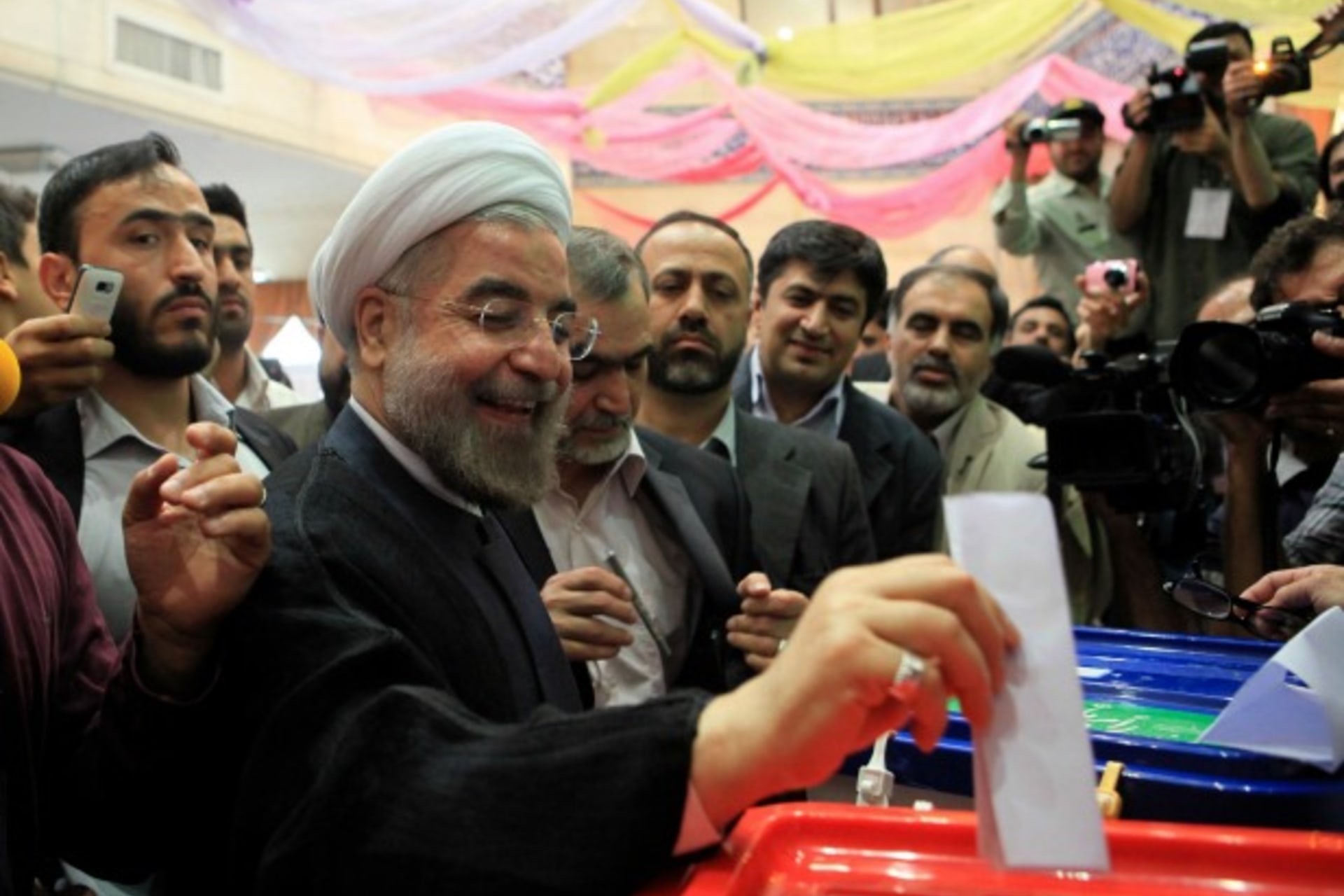Fake It Till You Make It: How Sham Elections Can Further Democracy

By experts and staff
- Published
By
- Terra Lawson-Remer
This month, Iranian voters elected Hassan Rouhani president. In April, Venezuelans also voted in a presidential election, choosing Nicolas Maduro to succeed longtime leader Hugo Chávez, who died earlier this year. Neither vote was truly democratic, but both are promising steps toward greater political freedom and democratic representation.
Iran’s Guardian Council vets candidates and approves only those deemed acceptable to the country’s theocratic leaders. This year, the council approved just eight out of nearly 700 individuals who tried to run. In Venezuela, Chávez was long accused of manipulating elections and using state resources to further his political ends. The election this year was likewise marred by allegations of manipulation.
Nearly all undemocratic regimes hold some kind of elections. Such exercises are often dismissed as transparent attempts to garner legitimacy and build a democratic veneer for authoritarian rule.
But might these elections, imperfect as they are, actually further the cause of democracy? Many scholars are now arguing that they can, at least under some circumstances. The title of a 2009 book edited by Staffan Lindberg sums it up neatly: Democratization by Elections: A New Mode of Transition. And a new paper by Daniela Donno evaluates the conditions in which authoritarian elections can lead to more democracy. Flawed elections are also a critical part of the “competitive authoritarianism” defined in 2002 by Steven Levitsky and Lucan Way.
In a new CFR book, Pathways to Freedom: Political and Economic Lessons from Democratic Transitions, my co-authors and I find that imperfect elections under authoritarianism can indeed advance democracy. As Jan Teorell puts it in his chapter, “…even if elections are flawed or fraudulent, that they are even held gives these countries a better chance at democracy, unlike the situation in closed single-party regimes, military dictatorships, or absolute monarchy.” Indeed, the process of voting helps deepen and entrench democratic processes and develop traditions, norms, and expectations of citizen participation. Moreover, elections can unleash demands for change that can spiral out of the regime’s control.
Four examples from the book—two in Latin America and two in Eastern Europe—illustrate these dynamics. Brazil’s military regime held elections to enhance its legitimacy by allowing the participation of an opposition party it believed could be controlled. However, many regime supporters defected to the opposition during a deep economic crisis in the 1980s. As a result, the indirect presidential election in 1985 gave an unexpected victory to opposition leader Tancredo Neves, restoring Brazil’s civilian rule.
In Mexico, the long-ruling Institutional Revolutionary Party (PRI) held regular elections to keep up appearances, even helping the opposition win seats here and there, as my colleague Shannon O’Neil points out. When an economic downturn hit the country, however, opposition forces used the opening the PRI had given them to press for more transparent elections. This campaign, along with outside pressure and governmental reforms, paved the way for the PRI’s eventual defeat in the 2000 presidential election.
In Poland, following Round Table talks between Communist and opposition Solidarity movement leaders, the 1989 election had more immediate unintended consequences. The Communists thought they had designed rules that would guarantee them a majority in the first parliamentary elections after the talks. But unexpected defections and strong opposition support allowed the Solidarity movement to form a government instead.
Similarly, a rigged election in 2004 was the trigger for Ukraine’s Orange Revolution. Hundreds of thousands of people flooded Kiev to demonstrate against the faulty vote. The uprising secured a re-vote in which opposition leader Viktor Yushchenko was elected president. Although Ukraine’s democratic advance has not been sustained, the episode shows the power of flawed elections as triggers for change.
Of course, policymakers should not ignore electoral shortcomings and must call out manipulation and fraud. Indeed, it is the hypocritical juxtaposition of democracy’s promise and the reality faced by those who are excluded and disenfranchised that often sparks popular uprisings. In the United States, the disjunction between rhetoric and reality proved a powerful force for change during the civil rights movement in the 1960s. Recognizing the role sham elections can play in furthering democratic progress, reformers interested in democratization should pressure autocratic governments to hold at least some kind of vote. Something is often better than nothing.
For now, many countries remain less than democratic. But if history is any guide, their elections could someday provide surprising momentum for democratic change—and give citizens valuable experience that could help them sustain democracy if and when it emerges.